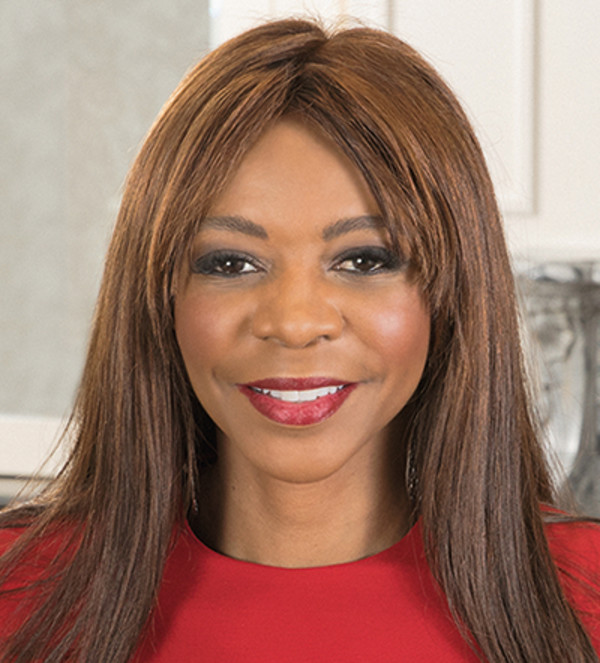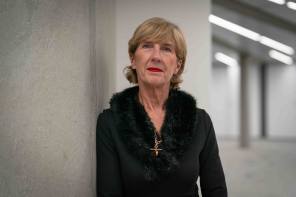

Born in Zambia, one of the poorest countries in the world, she grew up during an attempted coup in the country, so politics was always a talking point.
Moreover, as the daughter of a lecturer and a banker who engaged her in deep conversations about politics and economics, she says it was no surprise that she developed a strong academic interest in the subjects.
This background led to her getting degrees from Oxford and Harvard, before working at the World Bank, Goldman Sachs, and serving on several corporate boards since.
She says she has always been “curious about why some countries grow and others do not”.
According to Ms Moyo: “Being raised in a politically active home, I was always trying to get to the bottom of country development. Economics, to me, is a great interface of the micro and macro.
“For example, what makes someone choose coffee over tea – this is the micro. The macro is the big decisions on capital flows and finance and trade and immigration.”
The corporate workplace
After her PhD at Oxford, Ms Moyo got a job at Goldman Sachs in 2002.
Yet she did not find it to be such a culture shock, despite the view of investment houses as being male, pale and stale “back in the day” and forcing staff to “work crazy hours”.
Ms Moyo says: “I loved being at Goldman Sachs,” and praises the opportunities the investment bank provided to staff to build up their skill sets.
“My family always said it was important to have a clearly defined skill set to get hired, to get promoted. So being able to go to Goldman Sachs and learn tangible skills, like how to read a balance sheet or how to price a bond, are very important skills – not just for working on Wall Street but also for the career I have forged subsequently.”
Regardless of whether women end up in academia or science or finance or technology, she says it is important for anyone, male or female, to spend their 20s and 30s harnessing and learning a clear skill set.
“Was it tough being the only woman? The only minority? Yes, absolutely,” she says, adding: “There is a concerted effort to remedy that perspective.
“I am eternally optimistic. Things have improved. They are not where we want them to be, but they are changing. And my time on Wall Street was great. I enjoyed that experience and if I could, I would do it again.”
From theory to practicality
Coming out of academia into the practical world of work was a challenge, but she says her time at the World Bank in the 1990s, before she did her doctorate, had helped to shape her knowledge.
And, after her time at Goldman Sachs, she feels fortunate to have had the practical as well as the theoretical experience to inform her career, especially when it came to writing several books, such as Edge of Chaos in 2018 and How the West Was Lost in 2011.
Ms Moyo, who was named as Time Magazine’s 100 Most Influential People in the World, says the publication of her books over the past decade has been a “highlight”, allowing her to bring all her academic and practical knowledge into one place – the “printed page”.
While she is not writing or sitting on corporate boards, she reads history, something she has been doing a lot of since lockdown. In particular, she has been reading about the so-called ‘gilded age’ of American history; approximately 1870 to 1900.
Ms Moyo says this has pressed home how history lessons have been ignored. She explains: “History tends to repeat itself. In the gilded age, there were so many markers similar to what we had experienced: high economic growth, a globalised economy, a movement of ideas and a period with large corporations in dominant sectors.
“Then you’ve got the war in 1914, a global pandemic and an economic crash in 1929. After that you had aggressive protectionism, progressive economics, de-globalisation, low economic growth and high unemployment and I feel that is where we are today.”
However, she warns the answers to today’s problems will be different to those developed in the 1930s, mostly because of the inexorable rise of technology and digitisation – as noted especially during the Covid-19 lockdown.
Ms Moyo, who is also a member of the Bretton Woods Committee, which works to further international economic co-operation, explains: “We have a deep structural issue. In the 1930s, [John Maynard] Keynes was already forecasting that by 2030 we would have a jobless underclass.
“What Covid-19 has done is catalyse the risk of us ending in a place where those lower income jobs are particularly vulnerable to digitisation.”
Where now for the UK?
Given the economic slowdown and huge fiscal stimulus (debt) in the UK, as well as Brexit on the horizon, Ms Moyo says one has to “question whether we can really get that V-shaped recovery that economists are suggesting”.
She says we need to ask where the economy is now, and where is the economy going to land, and this should be considered by government.
“I’ve heard it said that the A-team might be working on Covid and the B-team might be working on Brexit, but everyone needs to work on future-proofing the economy,” Ms Moyo says.
But she is not pessimistic. “Everyone needs trade and investment and I think people will move forward and work together in these uncertain times.”
So how should advisers and their clients react to this uncertainty?
“Invest in what you know,” Ms Moyo suggests. When nothing is certain, invest in what “humanity will always want and need”. That’s what this world-renowned economist does for her portfolio.
Simoney Kyriakou is editor of Financial Adviser



